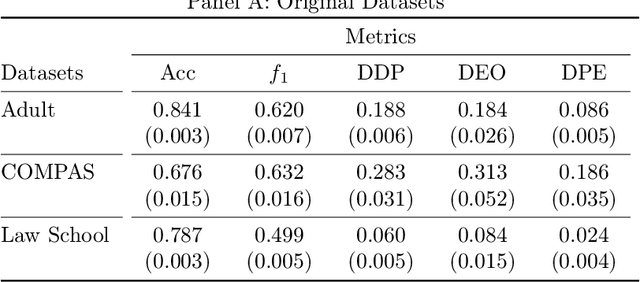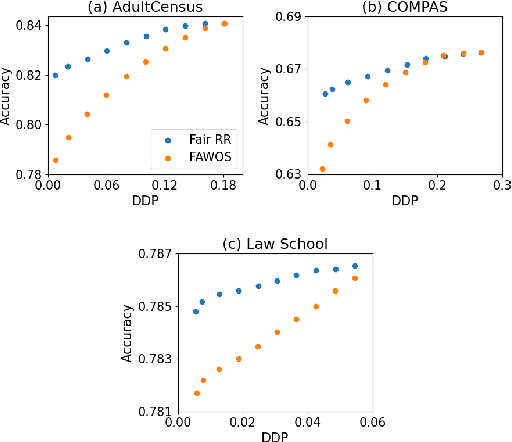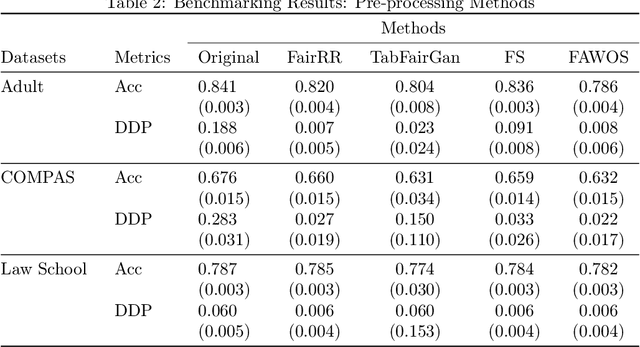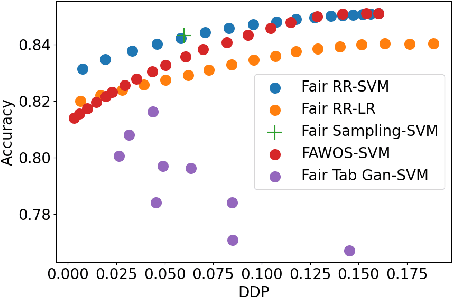FairRR: Pre-Processing for Group Fairness through Randomized Response
Paper and Code
Mar 12, 2024



The increasing usage of machine learning models in consequential decision-making processes has spurred research into the fairness of these systems. While significant work has been done to study group fairness in the in-processing and post-processing setting, there has been little that theoretically connects these results to the pre-processing domain. This paper proposes that achieving group fairness in downstream models can be formulated as finding the optimal design matrix in which to modify a response variable in a Randomized Response framework. We show that measures of group fairness can be directly controlled for with optimal model utility, proposing a pre-processing algorithm called FairRR that yields excellent downstream model utility and fairness.
 Add to Chrome
Add to Chrome Add to Firefox
Add to Firefox Add to Edge
Add to Edge